
A press release from the Archdiocese of Havana on July 8 announced the release, over the course of three to four months, of 52 of the 75 political prisoners convicted in summary trials in April, 2003. Twenty-three had already been released on medical parole.
The releases were the result of an unprecedented dialogue between President Raul Castro and authorities of the Catholic Church in Cuba. Weeks earlier the cardinal, Jaime Ortega, had taken steps for the release of a sick inmate and the transfer of several others to prisons near their homes and families.
The events were described as “great news”, despite the lack of official notice about them from the Government. The subsequent diplomatic agreement with Spanish Foreign Minister Miguel Angel Moratinos omitted to say under what legal basis the releases would occur, the most significant since the visit of Pope John Paul II in 1998.
It is inappropriate to talk of liberation while the criminal judgment imposed on the prisoners has not been extinguished. Otherwise, their departure from the country is forced.
Neither parole nor probation extinguishes criminal liability. In light of this, it would be advisable to anticipate the risks of serving the sentence outside of prison, but within the national territory. And under any pretext, they could be returned to jail.
Seen this way, it is not difficult to understand why the relatives of political prisoners prefer to leave the country. According to the note by the Archbishop of Havana, in the process of release, they took into account the proposals previously expressed to Cardinal Ortega by the families, eager to leave behind the ordeal experienced in the last seven years.
The criminal guilt of prisoners of conscience, according to the existing criminal law, could be extinguished by amnesty, pardon, or acquittal in review proceedings.
If they really intended to liberate, the Council of State would issue an official note, at the proposal of its President, who is in turn the Head of State and Government of the Republic of Cuba, pardoning all prisoners arrested and prosecuted in 2003.
The Council of State may order the Supreme Court to undertake a special review procedure and acquit those accused in the so-called “Black Spring”. Constitutionally, it has the power to issue instructions to that judicial body.
The National Assembly could also do its part. The supreme organ of the Cuban State could declare at its meeting to be convened on August 1st a general amnesty for all political prisoners. This power is recognized by the Constitution of the Republic.
Even more could be done. The parliament can declare the 1999 Law No. 88 (“On protection of national independence and the economy,” also known as the “Gag Law”) unconstitutional, for restricting the right of free expression, information and opinion, as it was used against most of the released prisoners.
According to the Spanish Foreign Minister, who traveled to Havana to join the dialogue between the Church and the Government, the released prisoners who travel abroad, once out, will require government authorization to return, while their family members may do so whenever they want. Fifteen of them are in Spain, awaiting political refugee status or assisted international protection, a special category provided in Spanish asylum law.
If the political prisoners who have agreed to travel to Spain or another country need authorization to return to the island, this means that entry and exit permits will continue in effect, and the confiscation of the property of Cuban emigrants, measures imposed by Law No. 989 of 1961.
This should not be confused with a humanitarian gesture, with a willingness to change. The unfolding of events shows that the Cuban Government has not the slightest intention of removing restrictions on the freedom of movement of its citizens. Is this a breakthrough in human rights?
Moratinos also told the international press that the Cuban government committed not to “expropriate” the homes of dissidents, among other unspecified rights. But during the negotiations there was no legally binding written agreement that ensures that the Cuban State will comply with its verbal commitments. In the national legal system there is no rule that allows making such concessions.
As a general rule, the Cuban authorities declare a permanent abandonment and proceed to confiscate the property of citizens who choose to reside permanently outside the country, unless granted the Permit of Residence Abroad (PRE). Permission is granted to Cubans who marry foreigners. But in the released prisoners are not in this category.
The fact that they talk of liberation, but not of the actions by which their release must be legally formalized, suggests that the Cuban government is trying to cover up the forced exile of political prisoners who agree to travel to Spain or other nations.
This is an illegitimate act and a violation of the rights of those people. No government action recognized by law may force a Cuban to leave his or her own land.
Laritza Diversent
Photo: AFP. Lester Gonzalez shows his passport shortly after his arrival in Madrid.
Translated by: Tomás A.

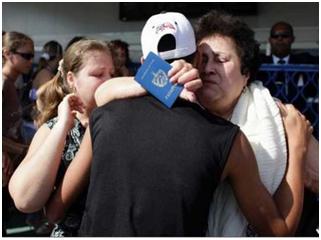 Recently the Archbishop of Havana announced the release of 52 political prisoners over the course of three to four months. A rather strange act, this being a secular state. In turn, Miguel Angel Moratinos, Spain’s Minister of Foreign Affairs, told reporters that those released will travel to his country, and once they are out of Cuba, they will require government authorization to return, while their family members may do so whenever they wish.
Recently the Archbishop of Havana announced the release of 52 political prisoners over the course of three to four months. A rather strange act, this being a secular state. In turn, Miguel Angel Moratinos, Spain’s Minister of Foreign Affairs, told reporters that those released will travel to his country, and once they are out of Cuba, they will require government authorization to return, while their family members may do so whenever they wish.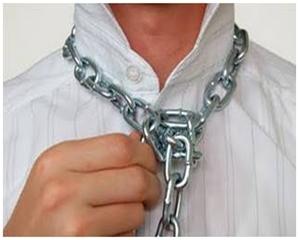 The announcement of the liberation of 52 political prisoners was described by some as “great news”, while others received it with caution and even suspicion. However, the legal grounds for the release, an event considered to be the most significant of its type in a long time, remained unclear.
The announcement of the liberation of 52 political prisoners was described by some as “great news”, while others received it with caution and even suspicion. However, the legal grounds for the release, an event considered to be the most significant of its type in a long time, remained unclear.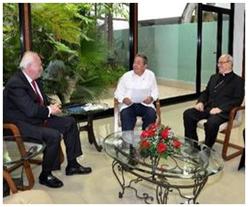 The release of 52 political prisoners, who had been sentenced in 2003 to between 6 and 28 years, caused joy on the one hand, and skepticism on the other. The Archbishop of Havana issued a communique, and Miguel Angel Moratinos, Foreign Minister of Spain, gave statements to the press. What is missing is the official government announcement on the matter. Clearly the scenario remains shadowy.
The release of 52 political prisoners, who had been sentenced in 2003 to between 6 and 28 years, caused joy on the one hand, and skepticism on the other. The Archbishop of Havana issued a communique, and Miguel Angel Moratinos, Foreign Minister of Spain, gave statements to the press. What is missing is the official government announcement on the matter. Clearly the scenario remains shadowy. On July 7, The People’s Provincial Tribunal of Havana responded to the group of independent lawyers who filed suit against the Justice Minister, Maria Esther Reus González.
On July 7, The People’s Provincial Tribunal of Havana responded to the group of independent lawyers who filed suit against the Justice Minister, Maria Esther Reus González.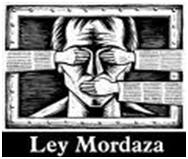
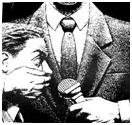 The Cuban Penal Code (CP) characterizes and punishes behavior that goes against the security of the state, the economy, public policy, etc. But in a different area of the law there is another criminal provision, which carries the same weight and promotes the same goals: Law No. 88, “Protection of National Independence and the Economy,” popularly known as “the Gag Law.”
The Cuban Penal Code (CP) characterizes and punishes behavior that goes against the security of the state, the economy, public policy, etc. But in a different area of the law there is another criminal provision, which carries the same weight and promotes the same goals: Law No. 88, “Protection of National Independence and the Economy,” popularly known as “the Gag Law.”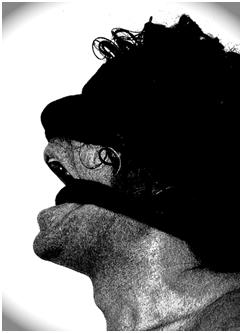 Freedom of expression is internationally recognized in the Declaration of Human Rights (Article 19). These prerogatives include being safe from oppression due to expressing an opinion, conducting research and receiving and spreading information, regardless of borders, by any means.
Freedom of expression is internationally recognized in the Declaration of Human Rights (Article 19). These prerogatives include being safe from oppression due to expressing an opinion, conducting research and receiving and spreading information, regardless of borders, by any means.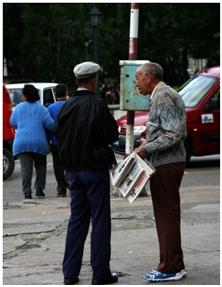 In principle, States enjoy sovereign power, which they are able to express through the actions of their government bodies and the enactment of laws. The latter are the suitable instrument for exercising their right to prescribe crimes and penalties (the right to punish). But it is disturbing how the Cuban government uses the coercive force of criminal law for political purposes.
In principle, States enjoy sovereign power, which they are able to express through the actions of their government bodies and the enactment of laws. The latter are the suitable instrument for exercising their right to prescribe crimes and penalties (the right to punish). But it is disturbing how the Cuban government uses the coercive force of criminal law for political purposes.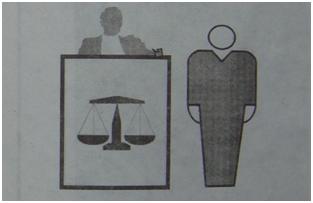 In Cuba, the power to administer justice belongs to the People’s Courts. The Supreme People’s Court (TSP), under Article 121 of the Constitution of the Republic, is the highest judicial authority and its decisions are final. But it is not recognized as the highest organ of “the People’s Power.”
In Cuba, the power to administer justice belongs to the People’s Courts. The Supreme People’s Court (TSP), under Article 121 of the Constitution of the Republic, is the highest judicial authority and its decisions are final. But it is not recognized as the highest organ of “the People’s Power.”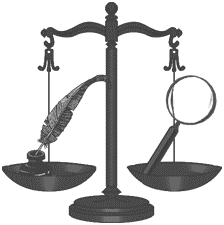 Juan, a commentator, told me he had sent a “Down with Fidel” email to the newspaper Granma, knowing that it is a crime in Cuba. He asked me what sanction they would impose if they found out who he is.
Juan, a commentator, told me he had sent a “Down with Fidel” email to the newspaper Granma, knowing that it is a crime in Cuba. He asked me what sanction they would impose if they found out who he is.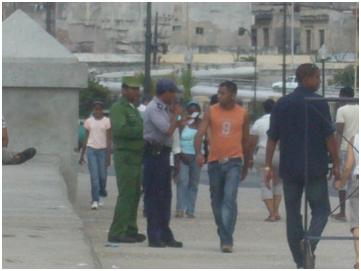
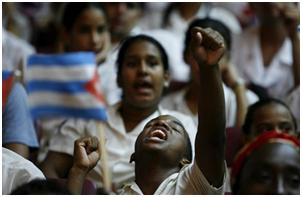 Exactly how do minors become affiliated with the Committees for the Defense of the Revolution?
Exactly how do minors become affiliated with the Committees for the Defense of the Revolution? However, I can assure you that less than 1% of the members of the CDR know the rules of the organization. The important thing is your commitment, not what you are committing to. They don’t care if you consent to the rules, nor if you comply with the obligations assumed.
However, I can assure you that less than 1% of the members of the CDR know the rules of the organization. The important thing is your commitment, not what you are committing to. They don’t care if you consent to the rules, nor if you comply with the obligations assumed.